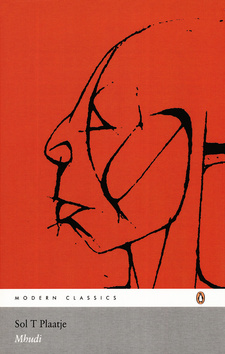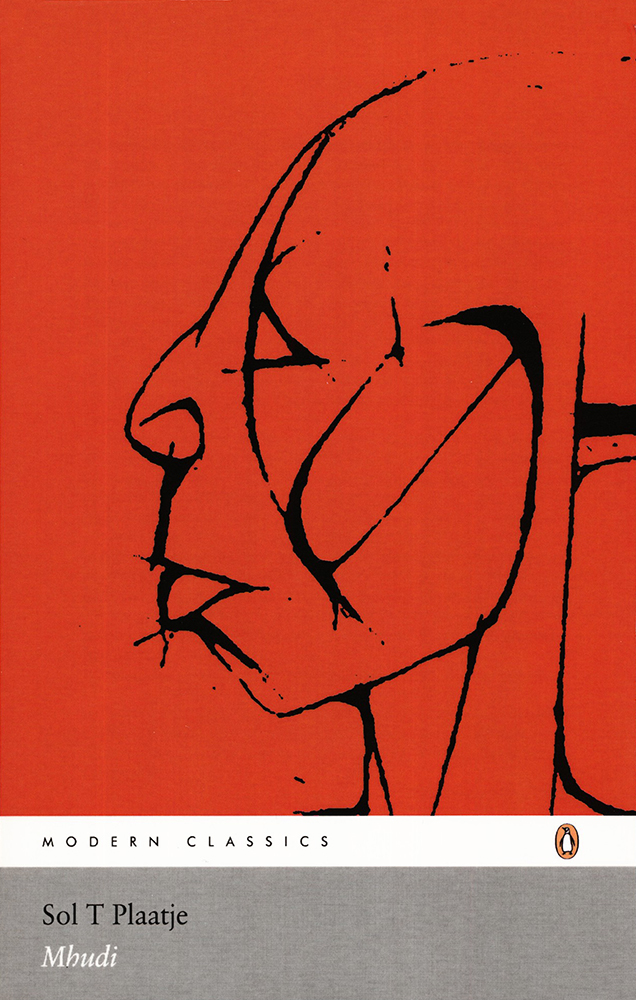Mhudi, by Sol T. Plaatje

Mhudi, by Sol T. Plaatje. The Penguin Group (South Africa). Cape Town, 2006. ISBN 9780143185406 / ISBN 978-0-14-318540-6
Sol T. Plaatje's classic novel about the refugee and harvester Mhudi is set in the epic wars of the 1830s in Southern Africa. The humour and imagination which made Plaatje’s journalistic labour and his advocacy of his people so fruitful and acceptable are enlivening features of his work.
A Tragedy and its Vendetta
Two centuries ago the Bechuana tribes inhabited the extensive areas between Central Transvaal and the Kalahari Desert. Their entire world lay in the geography covered by the story in these pages. In this domain they led their patriarchal life under their several chiefs who owed no allegiance to any king or emperor. They raised their native corn which satisfied their simple wants and, when not engaged in hunting or in pastoral duties, the peasants whiled away their days in tanning skins or sewing magnificent fur rugs. They also smelted iron and manufactured useful implements which today would be pronounced very crude by their semi-westernised descendants. Cattle breeding was the rich man's calling and hunting a national enterprise. Their cattle which carried enormous horns ran almost wild and multiplied as prolifically as the wild animals of the day. Work was of a perfunctory nature, for mother earth yielded her bounties and the maiden soil provided ample sustenance for man and beast. But woman's work was never out of season. In the summer she cleared the cornfields of weeds and subsequently helped to winnow and garner the crops. In winter times she cut the grass and helped to renovate her dwelling. In addition to the inevitable cooking, basket-making, weaving and all the art-painting for mural decorations were done by women. Childless marriages were as rare as freaks so, early and late in summer and winter, during years of drought and of plenty, every mother had to nourish her growing brood, besides fattening and beautifying her daughters for the competition of eligible swains. Fulfilling these multifarious duties of the household was not regarded as a drudgery by any means; on the contrary, the women looked upon marriage as an art; the daughter of a well-to-do peasant, surrounded by all the luxuries of her mother's home, would be the object of commiseration if she were a long time finding a man. And the simple women of the tribes accepted wifehood and transacted their onerous duties with the same satisfaction and pride as an English artist would the job of conducting an orchestra. Kunana, near the present boundary between Cape Colony and Western Transvaal, was the capital city of the Barolong, the original stock of the several tribes, who also followed the humdrum yet interesting life of the other Bechuana Natives. They planted their stations in different directions over scores of miles; and it was often easier to kill wild animals nearer home than go to the cattle-post for meat. Very often the big game ran thalala-motse (when wild animals continued their frolics straight through a Native village) when there would be systematic slaughter of antelopes and orgies of wild-beef eating. Barolong cattlemen at times attempted to create a new species of animal by cross-breeding between an eland and an ox. One cattle-owner, named Motonosi, not very far from Kunana, raised two dozen calves all sired by a buffalo. The result proved so disastrous that Barolong tradition still holds up his achievement as a masterpiece of folly, and attempts at cross-breeding thereafter became taboo. These peasants were content to live their monotonous lives, and thought nought of their oversea kinsmen who were making history on the plantations and harbours of Virginia and Mississippi at that time; nor did they know or care about the relations of the Hottentots and the Boers at Cape Town nearer home. [...]
This is an excerpt from the novel Mhudi, by Sol T. Plaatje.
Title: Mhudi
Author: Sol T. Plaatje
Editor: Stephen Gray
Series: Penguin Modern Classics
Genre: Narrative
Publisher: The Penguin Group (South Africa)
Cape Town, South Africa 2006
ISBN 9780143185406 / ISBN 978-0-14-318540-6
Paperback, 13 x 20 cm, 193 Seiten
Plaatje, Sol T. im Namibiana-Buchangebot
Mhudi
The narrative 'Mhudi' will remain as an important early work of imaginative writing by a black South African novelist.

